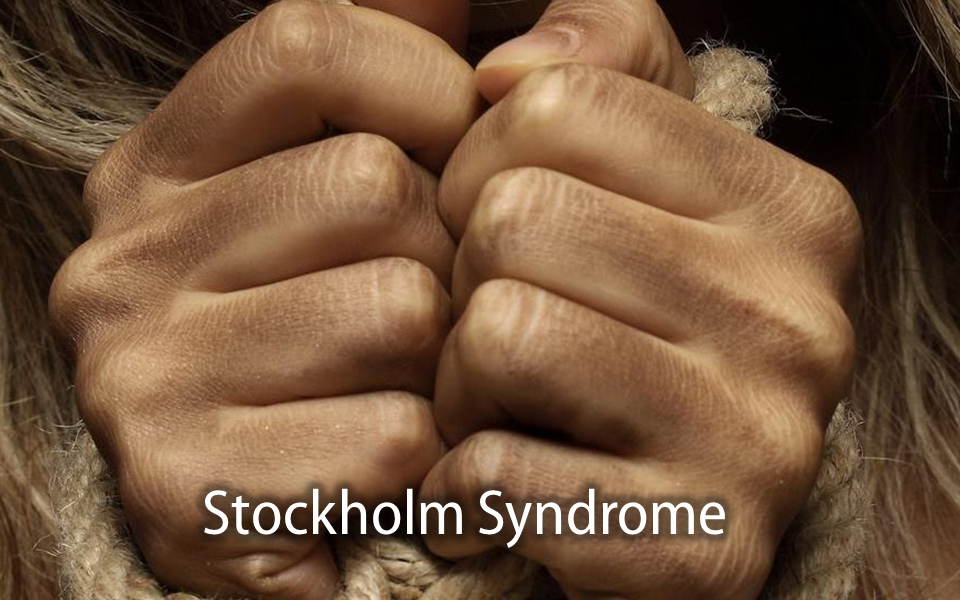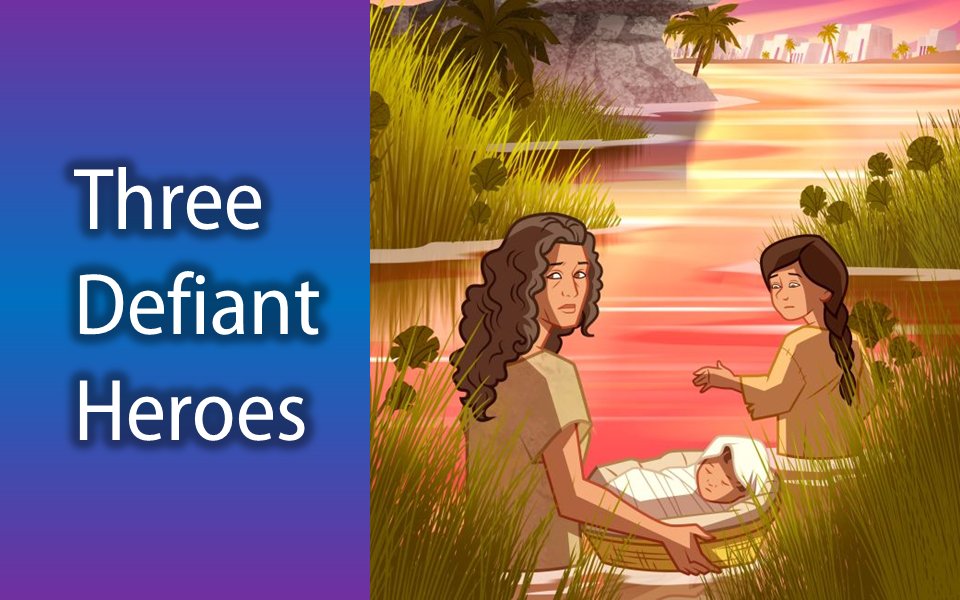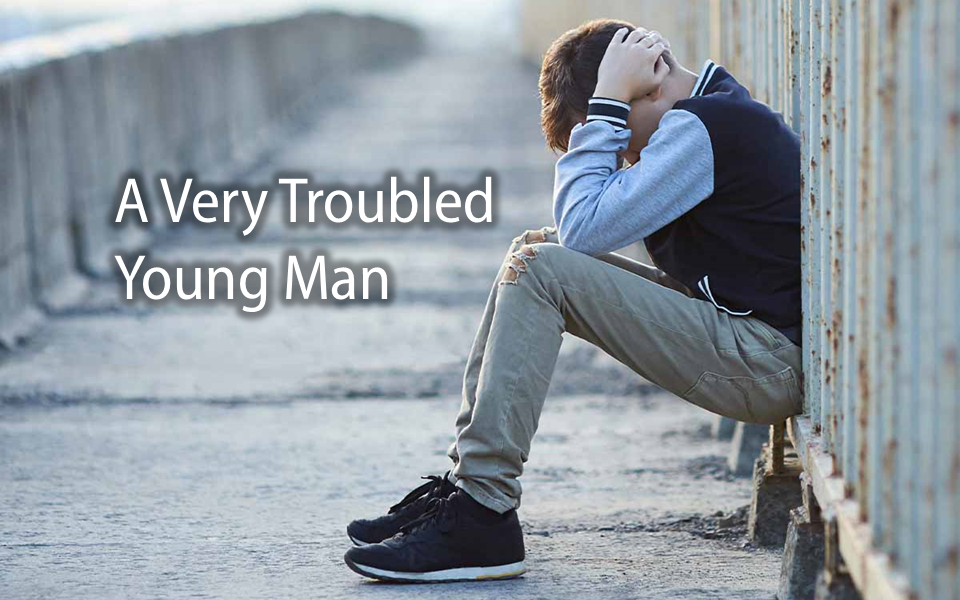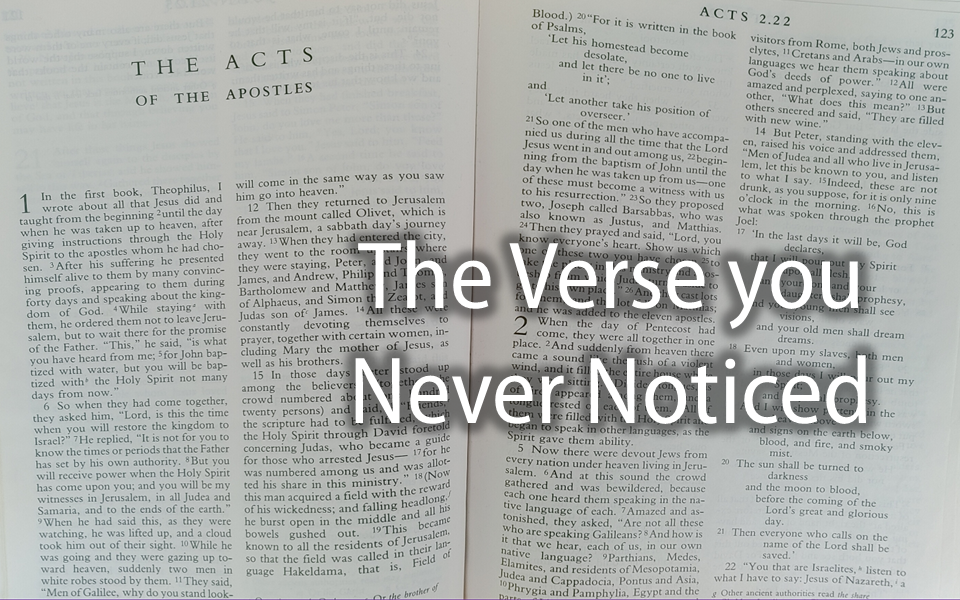Hespeler, 3 July 2022 © Scott McAndless
2 Kings 5:1-14, Psalm 30, Isaiah 66:10-14, Psalm 66:1-9, Galatians 6:7-16, Luke 10:1-11, 16-20
In 1973, there was a bank robbery that took place in the city of Stockholm, Sweden. In the course of their crime, the bank robbers took four hostages. The hostages were eventually released unharmed. But the public, and particularly the media, were rather puzzled by how the hostages reacted in the aftermath. They defended their former captors and even refused to testify against them when they were put on trial.
For many, this reaction was so irrational that they decided that it was basically some form of insanity. They called it the Stockholm Syndrome, a term that is still brought out and applied in similar situations today. It is defined as a condition in which hostages develop a psychological bond with their captors during captivity.
Why we Like Stockholm Syndrome
Journalists love to talk about the Stockholm Syndrome whenever they report on stories about hostages, but the fact of the matter is that psychologists are rather skeptical that such a thing truly exists. A closer look at the events that did take place in Stockholm in 1973 inspires many doubts. It turns out that the hostages in that ill-fated bank robbery may have been more upset with the police than they were in love with their captors. They were, in fact, very angry with the callous way in which the police had acted and endangered their lives. That likely had more to do with their refusal to testify than did any love for the robbers.
Is it Actually Real?

But the idea of Stockholm Syndrome remains a powerful one. Something similar is often proposed in discussions of slavery – both in the ancient world and in the pre-civil war American South. “But slaves often loved and were devoted to their masters,” the protest goes. “Surely that is an indication that slavery wasn’t so bad.” But I rather suspect that, just as in the case of the robbery in Stockholm, if you look closely the whole thing about slaves loving their masters it is not so simple as that.
So let’s do that. Let’s look closely at one of my favourite stories of a slave that apparently did something out of love for her master
The Aramean Raid
Abriyah woke up screaming. It had been the same nightmare; it was always the same nightmare. In her dreams the Arameans had come yet again, storming into her village in the middle of the day. There had been no warning and no real opportunity for the people to prepare themselves. Abriyah had been out of her house fetching some water from the village well. She would never see her home or her family again. The men had come upon her and two other girls who were at the well. Before she even knew what was happening, her hands had been bound and she had been unceremoniously dumped into the back of an oxcart.
Later that same day she and the others were taken out of the cart and brought before the raiders as they celebrated. They were dividing up their spoils with each man claiming his share of the livestock, fruits and grain. Abriyah had no illusions that she was anything other than just another piece of plunder to them.
The Boogeyman
As she stood there in her ripped tunic, on display before the leering company, they all suddenly fell silent as one man stepped forward. He stood there with such an air of authority and power that there was no question he was the leader of the raiding party. She knew right away that this could be none other than Naaman, a fighter who was so cruel and effective that he had become something of a boogeyman to the people of Israel.
Parents would warn their children when they put them to bed that, if they didn’t settle down and go to sleep right away, that Naaman would come and get them and take them away. Well now, here the boogeyman was, as real as real could be. And he had finally come for her. She cried out in her sleep, cried out to her parents yelling that she was sorry and that she would be a better girl in the future. But she woke to discover that her parents were gone and that she would never see them again.
Life in Naaman’s Household
Naaman chose Abriyah as his plunder from that day’s work. It was indeed a chieftain’s share. He took her home and gave her to his wife as a servant. And Abriyah quickly found herself subjected to seemingly endless toil in the kitchen and around the house.
Naaman was everything that she had expected of him. He was cruel and completely self-absorbed. There was a haughtiness to him. He seemed to think that everything Aramean was better than anything anywhere else. The rivers of Aram were better than any other streams. The food of his land was far superior to what anyone else ate.
As a result, because she was an Israelite, he consistently treated Abriyah as if she were an imbecile. He was rude and crude and he never cared about her feelings because, as far as he was concerned, she was little better than an animal. She didn’t have human feelings.
Naaman Falls Ill
So, life was far from easy in Naaman’s household. But then it suddenly became so much worse. Naaman came home one day from his latest raid, and something was wrong. The skin on his arms and back and legs soon turned red and he scratched at them until they bled. If she had thought that he was a difficult man before, he quickly became unbearable. He was in constant pain and discomfort, and it quickly stripped away any patience or sympathy he might have ever had.
And Abriyah was often the one who was closest when the rage hit him. She was certainly the one that he could attack without consequence. The life of a common slave that she had once had in the household now seemed almost like a lost dream. She began to dream of escaping back to her homeland, but she knew that escape was impossible.
Finding Comfort
Whenever Abriyah found a few moments of respite in her miserable life, or when she lay awake in her bed at night, too afraid to go to sleep for fear of her nightmares, she tried to comfort herself with memories of her home. She told herself the stories that her parents had once told her – stories of Abraham and of Moses. But she found particular comfort in the popular stories that were told in her village about the prophets, especially the stories about Elijah and Elisha. People eagerly told these tales because they were so exciting and because these men were still alive and might well pass through the village at any time.
Abriyah had always felt as if these men were her protectors, or at least they would be if they were given the chance. Again and again, they had taken on the enemies of Israel, including the Arameans, and had triumphed in surprising and fantastic ways. Why, it was even said that once the prophet Elisha had defeated an entire Aramaean army by striking them blind and leading them into a trap! She began to dream of the possibility that Elisha, who was still living the last she heard, would find out about her plight and come and save her.
Talking About her Hope
Once finding some small reason to hope – no matter how unlikely her salvation was – she found that she simply could not stop thinking about it. That also meant that she could not stop talking about it either. She began to talk to all of the other slaves in the household about how Elisha was going to come and save her and about how he would be able to help all of them too.
And then one day, she even spoke to her mistress. She came upon her at an unguarded moment in her chambers and found her weeping. She suddenly realized that, even though she had the status of wife and freewoman, in some ways her mistress was no less a captive in this household than she was. The mistress was certainly not spared from the cruelty that Naaman could dole out when he was taken up in his pain and misery.
And so, Abriyah went to speak to her mistress. That was when something came to mind that she could say to comfort her. “If only my lord were with the prophet who is in Samaria! He would cure him of his leprosy. And then perhaps you could find some peace.”
To Israel for a Cure
Much to her surprise, Abriyah’s comment caused quite a stir in the household. Both Naaman and his wife were feeling pretty desperate lately. She went running to him immediately with what she had heard. And, even if Naaman had a hard time believing that anyone from Israel could offer anything of value, he was desperate enough to follow up. He did it in the most typical way possible for him. He was arrogant and demanding. He put the king of Israel into a very compromising position that the prophet Elisha had to save him from. And then, when the prophet told him that he had to bathe in a filthy Israelite river in order to become clean, he almost lost it.
But then something happened. Something broke through and Naaman was healed. In many ways, to tell the truth, the biggest miracle wasn’t the fact that his skin condition suddenly improved. By far, the biggest miracle, at least as far as Abriyah and the rest of the household were concerned, was that something had finally broken the arrogance that Naaman carried in his heart.
After he Returned
Naaaman returned to his household bringing with him two mule loads of soil that he had collected in the land of Israel. He understood, everyone understood, that certain gods belong to certain places. You could only worship a god in the place that belonged to that god. But Naaman had decided that now he had to worship Yahweh, the God of Israel, who had healed him of his skin condition. So, he had brought a little bit of the land of Israel so that he could set up an altar upon it to worship the God of Israel.
I wish I could tell you that, after he returned, Naaman was always kind and gentle with Abriyah and the others in the household. Many things about him didn’t change. He continued to be a fearsome war leader and raider. He did sometimes forget the lesson that he had learned, the lesson that people from other places might actually know things or have things of value. Sometimes the old arrogance did shine through. But there were times when he did look at Abriyah and remember to consider the possibility that, even though she was an Israelite, she might know a few things about the world.
The life of a slave remained the life of a slave. Abriyah did not find that her labours or fears were lightened at all. But I will say that her nightmares got better for one reason. She did have the opportunity to worship when Naaman worshiped upon the piece of Israelite soil that he had brought back. And so, in that place, she did find a connection with her home and with the God that had felt so very far away. And that brought her some comfort.
What is this Story About?
For some reason I remember hearing the story of the slave girl who served Naaman’s wife back in my Sunday school days. I remember how I was told to read that story. That little girl – who, of course, doesn’t have a name in the Bible and that I simply had to give a name to in order to tell her story – was held up as the example of a perfect evangelist. She was lauded as someone who did what we are all supposed to do and tell other people about Jesus.
Now, on one level, I don’t really have a problem with the idea that people should be willing to share with others how their faith in Jesus has helped them in their life. I don’t appreciate how some people do that in an imposing or coercive way, but just sharing that honestly can be a wonderful sharing of your own life with somebody else. But I am going to suggest that, if that’s all you get from the story, that might be a bit of a problem.
Failing to Support Victims
You see, the Christian tradition has a history of putting people who have been victimized in various ways into a position where they feel an obligation to endure their suffering without complaint in the service of the gospel. There are too many stories of abused women, for example, who were told to remain in their abusive marriages as a gospel witness. There are too many stories of people victimized by the church in some way who were forced to be quiet about it because it would somehow damage the witness of the church. That, I must say loud and clear, is simply wrong and the very opposite of a good witness.
So I am not, in any way, willing to read the story of this girl in a way that minimizes the trauma and abuse a captive at that time in history would have suffered. Any sort of simplistic understanding of this story that turns her into someone with Stockholm Syndrome, someone who only loves her masters, is a failure to struggle with some pretty dark history. I have to read her as simply doing whatever she can to hold on to her identity and save herself in a horrible situation. That is what we all need to do.
And if God manages to bring some good out of a horrible situation for ourselves or for anyone else, well that’s just the amazing kind of God that we have. But none of that should be taken to mean that it is God’s desire or will that anyone be a victim or tolerate abuse. That is simply not the kind of God that we have. And I think that that needs to be said






